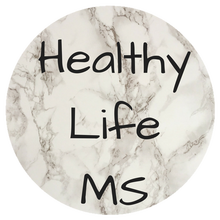Much research has been carried out looking at the links between various other diseases and whether PwMS are at increased risk of developing them. Much of the work is inconclusive and further work is needed to draw detailed conclusions: rest assured that so much research is ongoing around MS that we expect to hear more in the near future.
What we know currently:
What we know currently:
Osteoporosis
Osteoporosis is a condition characterised by weakening of the bones as we age; the bones become more fragile and susceptible to breaks particularly at high risk sites like the hip, spine and wrist. Bone mass naturally declines as we age increasing the risk of osteoporosis; similarly hormonal changes occurring in women during menopause significantly decrease bone mineral density vs many men of similar age, although osteoporosis is by no means only a female concern. Much of the population is at risk of the disease.
Maintaining bone mineral density
Bone mineral density can be maintained through regular weight-bearing exercise (such as running and walking) and as such PwMS may be particularly susceptible owing to immobility, reduction in ability to exercise and certain prescribed treatments such as steroid drugs or antidepressants. Balance problems and fatigue can increase the risk of falls and subsequent fractures.
Diet plays an important role in maintaining bone mineral density; inadequate intake of vitamin D and calcium can contribute to increasing risk. Dietary recommendations include healthy balanced eating pattern paying particular attention to dairy products and oily fish. Maintaining a healthy weight can also help to reduce pressure on the bones and make movement easier.
Maintaining bone mineral density
Bone mineral density can be maintained through regular weight-bearing exercise (such as running and walking) and as such PwMS may be particularly susceptible owing to immobility, reduction in ability to exercise and certain prescribed treatments such as steroid drugs or antidepressants. Balance problems and fatigue can increase the risk of falls and subsequent fractures.
Diet plays an important role in maintaining bone mineral density; inadequate intake of vitamin D and calcium can contribute to increasing risk. Dietary recommendations include healthy balanced eating pattern paying particular attention to dairy products and oily fish. Maintaining a healthy weight can also help to reduce pressure on the bones and make movement easier.
Heart Disease
There has been various research around whether MS can increase the risk of developing heart disease and make patients more susceptible to heart attack and stroke. As with much research on diet and links to disease, and much of thee research around diet in helping MS, the results are contradictory and more research is needed.
Recommendations remain which highlight the benefits of maintaining a good, well-balanced diet in reducing the risk of heart disease in the general population.
There has been various research around whether MS can increase the risk of developing heart disease and make patients more susceptible to heart attack and stroke. As with much research on diet and links to disease, and much of thee research around diet in helping MS, the results are contradictory and more research is needed.
Recommendations remain which highlight the benefits of maintaining a good, well-balanced diet in reducing the risk of heart disease in the general population.
Sources:
MS Trust (2014) Diet factsheet
National Osteoporosis Society (2016) About Osteoporosis
MS Trust (2014) Diet factsheet
National Osteoporosis Society (2016) About Osteoporosis
